Get ready to mark your calendars for International Siblings Day 2023 and celebrate the amazing bond you share with your brothers and sisters! However, before you dive into the festivities of brothers and sisters day, it’s essential to acknowledge the darker side of sibling relationships – Sibling abuse and bullying.
Sibling Fight. Fighting with siblings is a natural part of our childhood. But when disagreements turn into violence, it can quickly turn into sibling abuse and bullying.
“Siblings: your only enemy you can’t live without.” – Anonymous
Sibling abuse and bullying can have a severe psychological and emotional impact on children and can be highly traumatic and stressful. In fact, around 40% of children experience sibling bullying and abuse every week.
Moreover, about 50% of children have been physically attacked by a sibling and 15% have been physically assaulted repeatedly. It has also been reported that around 32% of children have experienced some form of intrafamilial aggression from their siblings. However, most of these events go unreported.
The truth is sibling bullying is a hidden epidemic that can adversely affect the development of children. Studies have found that sibling abuse and bullying can lead to a number of long-term mental health issues in children like anxiety, depression, self-harm, and obesity when parents do not address it.
What is sibling bullying?
Can we call it abuse if a brother calls his sister an “idiot”?
Can we call it bullying if an older sister wants her younger brother to stay away when her friends are over?
Can we call it abuse if 2 siblings fight over the TV remote?
Can we call it bullying if the dominant sibling says “It’s his fault. He started it.”
When it comes to children, it becomes very difficult to define abuse and bullying. Generally, bullying refers to deliberate, repeated, and severe efforts to harm a person. As there is a difference in power, the victim feels helpless to defend or protect themselves. Abuse is when a person causes distress or harm to someone. Sibling abuse is the physical, emotional, and sometimes even sexual, abuse by one sibling on the other.
Most of the time it is mild aggression like shoving, pushing, or hitting on the head, however, it can also include extremely violent behavior. Whereas, sibling bullying refers to repeated incidents that are more than teasing. The dominant sibling usually physically or verbally abuses the victim several times a week.
According to a study by the University of Warwick and published in The Lancet Psychiatry, sibling bullying may be defined as –
“Any unwanted aggressive behavior(s) by a sibling that involves an observed or perceived power imbalance and is repeated multiple times or is highly likely to be repeated; bullying may inflict harm or distress on the targeted sibling including physical, psychological, or social harm. It encompasses two modes of bullying (direct and indirect) as well as four types of bullying (physical, verbal, relational, and damage to property).”
So sibling abuse and bullying may be described as repeated physical aggression and assault with an intention to hurt or harm another sibling with the motivation of establishing control and power.
One of the children, mostly the younger one, is always the victim and loser. It is a growing aggressive pattern that parents can have a hard time coping with if they don’t intervene from the beginning.
Read 30+ Hilarious Siblings Day Memes To Celebrate An Unbreakable Bond
What sibling abuse and bullying look like
Every disagreement and conflict between siblings cannot be considered bullying. However, when it becomes repetitive and severe, parents need to take notice. If a 5-year-old brother hits her 3-year-old sister for a toy, then it is a natural sibling rivalry. However, when a 14-year-old brother repeatedly hits and abuses his 10-year-old sister for the remote or the video game, then it counts as bullying.
Usually, the older child is the dominant one and tends to act as the bully or the aggressor. The dominant child will keep escalating the aggression while the victimized child will always be the loser in these ‘arguments’. Bullying among siblings may take different forms. However, it will always focus on humiliating, insulting, shaming, or excluding the victimized sibling. It may also comprise of constant threats, teasing, name-calling, and taking help of other siblings to belittle the target sibling.
Read Why Your Older Sister Is The Best Person To Have Around
What makes children abusive?
It has been observed that bullying mostly originates in families with a history of abuse, where bullying strategies are openly practiced by abusive parents. As children learn from their parents, it is likely that an abused child will become a bully and an abuser themselves. They usually target victims who are less powerful than them, like a younger sibling, and will use various strategies to bully their target.
It is primarily a coping mechanism for them that allows the aggressor to release their frustration that has resulted from ill-treatment from their parents.
The usual victim of bullying in a sibling relationship is mostly the thoughtful and sensitive child. On the contrary, the bully might also be facing some serious issues and problems which the parents fail to notice. The aggressor may be bullied and abused by parents, older siblings, or even at school. They may be simply acting out and transferring their pain, trauma, and frustration to another person.
This can often be seen in unhealthy and dysfunctional families where the children may feel unloved, neglected, and unsupported. Hence, bullying a younger sibling may be an act of retaliation or simply a cry for attention.
Apart from these, there may also be some other less common reasons for sibling abuse and bullying. The aggressor may be suffering from certain personality conditions and disorders. Moreover, children can also act like bullies to exert dominance over other siblings and gain a power position in the family. By abusing and bullying their siblings, the aggressor gains control over other siblings and gets things his/her way.
Sibling bullying can also happen if parents are not serious about reprimanding bad behavior in children. When parents think that bullying among siblings is merely a phase and just ‘sibling things’, the aggressor becomes more confident while the victim shuts down even more.
The sad truth is parents often fail to identify sibling abuse and bullying as society expects brothers and sisters to fight and be aggressive as children. Although arguments among siblings are normal, parents should also realize abuse can lead to serious mental and emotional damage.
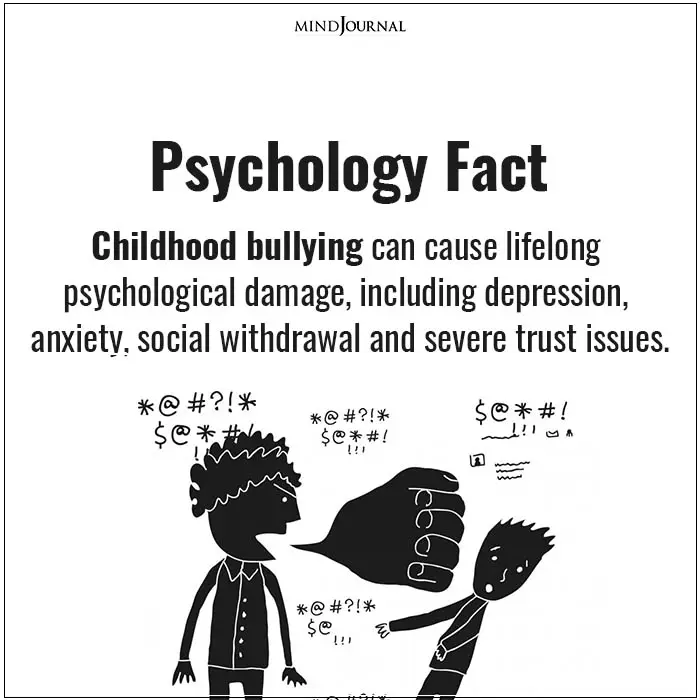
Identifying sibling abuse and bullying
It is often easy for parents to confuse sibling bullying with sibling rivalry. But these are not the same. Sibling rivalry doesn’t lead to the victimization of one child. This is why it is important that parents effectively identify sibling bullying. Parents need to realize that bullying doesn’t necessarily involve physical abuse. Mental and emotional abuse can be just as damaging.
One of the best ways to identify bullying among siblings is by recognizing the 3 components of sibling bullying:
- Power imbalance
- Intentional actions
- Repetitive behaviors
When one sibling dominates another and regularly engages in intimidation, humiliation, name-calling, and different forms of abuse, it is undoubtedly sibling bullying. This kind of behavior is unacceptable and parents should intervene immediately to protect both children.
As a parent, you always need to keep in mind that if one child is always the abuser and aggressor and the other child is always targeted and victimized, it is an abusive sibling relationship.
Here are some common signs of sibling abuse and bullying:
- The same sibling is always abused.
- The abused child avoids the aggressive, dominant sibling.
- One child acts abusively while playing.
- The violence & aggression between siblings keeps escalating.
- The siblings play fixed roles: one is always abusive, the other is always victimized.
- The victim shows changes in eating habits, sleep patterns and behavior with growing nightmares and physical illness.
Related: 6 Signs Your Child Is A Victim Of Bullying And Ways To Help
How it affects sibling relationships
“Bullying is a horrible thing. It sticks with you forever. It poisons you. But only if you let it.” – Heather Brewer
Unfortunately, the relationship dynamics mostly remain consistent between the bully and the victim even into adulthood. The aggressor will keep on bullying, abusing & victimizing their sibling well into their adult lives as it boosts their fragile ego and sense of self-worth. After years of sibling abuse, the victim will become bitter, hateful, and unsympathetic. However, they will likely allow the bullying to continue as they will be unable to find a way to stop it or change the circumstances.
Estrangement is fairly common among adult siblings and a recent study conducted by Cornell University discovered that 1 in 10 adult individuals have alienated themselves from at least one family member, especially siblings.
For victims of sibling abuse and bullying, estrangement is a last but necessary resort as avoiding contact with the aggressive sibling is their only way to free themselves from their sibling’s abusive grasps. Although estrangement may not be easy, it provides the victims a much-needed sense of relief and an opportunity to rebuild their self-esteem and sense of self-worth.
Effects Of Sibling Abuse In Adulthood
Sibling bullying can leave lasting mental and emotional scars on the victim that can even adversely affect their adult lives. According to a study conducted as a part of The National Survey of Children’s Exposure to Violence, being bullied by a sister or brother, whether severe or mild, can lead to serious mental health issues in children.
Another study by Dieter Wolke & Alexandra Skew, psychologists from the UK, found that almost 50% of children experience sibling bullying on a monthly basis and it can result in “worse mental health” and higher chances of being bullied by peers. A research paper authored by Professor Lucy Bowes Ph.D., Department of Experimental Psychology at Magdalen College, University of Oxford, found that 12-year-old children who were repeatedly bullied had twice as many chances of suffering from depression & self-harm by the age of 18.
Although this doesn’t suggest that bullying necessarily leads to depression, sibling bullying can significantly affect the victim’s mental health.
Moreover, Dr. William Copeland, associate professor at Department of Psychiatry and Behavioral Sciences of Duke University Medical Center in Durham, has claimed:
“We’ve looked at mental health, inflammation, education, work, social relationships in adulthood and physical health, and across the board, we tend to see that victims have long-term effects of this early experience.”
Related: 12 Reasons Why The Middle Child Is The Best Child
How the bullied child is affected in adulthood
The effects of sibling abuse and bullying are long-term and the victim can feel traumatized for years to come. Not only does the survivor lack self-confidence, assertiveness, and self-esteem, they also experience long term emotional health problems which affect the victim’s life even during their adulthood. Apart from struggling with depression, anxiety, stress, lack of confidence, and identity issues, the victimized sibling may also feel hopeless, isolated, and lonely.
A major British study revealed that sibling abuse and bullying can affect the victim almost 40 to 50 years later. Being bullied during childhood can affect an individual’s mental and physical health well into middle age. They can experience anxiety, depression, and suicidal thoughts along with physical health problems.
Professor Louise Arseneault, the senior researcher from the Institute of Psychiatry at King’s College London, said:
“Some children will be set on a pathway towards problems for the rest of their lives. We need to take bullying seriously and do all we can to prevent it and help those children when it does happen.”
The survivors develop an inability to stand up for themselves which creates issues at work and relationships as adults. They mostly have skewed notions about personal boundaries and may be confused about what a healthy relationship feels like.
The abused child may grow up to be aggressive and a bully themselves or become codependent and play a submissive, pleasing, accommodating, and victim role in romantic relationships and friendships by developing learned helplessness. As they were not protected by their sibling and parents, they can become distrustful, emotionally unavailable & hypervigilant.
A person who is bullied by a sibling during childhood may also be afraid of vulnerability & dependence. It may also lead to alcohol addiction, substance abuse, and eating disorders.
Victims of sibling abuse and bullying usually struggle with their careers and romantic relationships as adults and may also suffer from poor academic performance as well. Moreover, it can also lead to a number of physical ailments like stomach aches, headaches, weakness, and other physical issues. Sibling bullying takes away the one place a child should always feel safe in – their home.
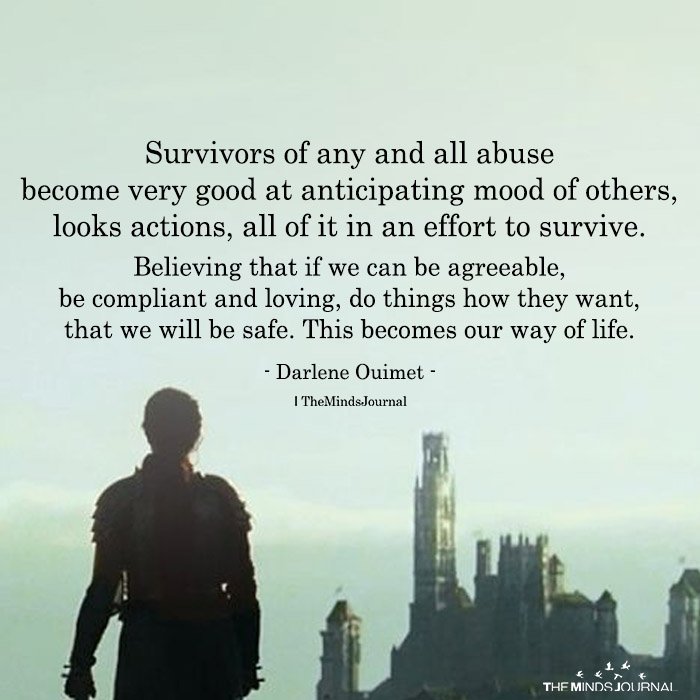
Read 5 Moments When You Are Most At Risk of Sibling Estrangement
How to prevent sibling abuse and bullying
“The greater the power, the more dangerous the abuse.” – Edmund Burke
Is one of your children abusing the other? Do they seem to fight constantly? Is one of your children always the loser? Then it’s about time you intervene and prevent this damaging behavior from continuing.
Most parents tend to overlook or deny unpleasant and cruel behavior in their children. However, if you suspect that there may be some form of abuse or bullying going on among your children, you need to put a stop to it immediately.
You need to intervene in an authoritative yet sensible manner so that there is enough opportunity for the siblings to resolve their conflicts by themselves with a little help from you. But make sure you do not take a clear side as it may lead to more aggressive sibling behavior as they start fighting over parents’ love.
Related: 12 Ways to Empower Your Child Against Bullying
Here are a few effective ways for intervening and preventing sibling bullying from the very beginning:
- Separate your children every time there is any aggression or violence between them.
- Do not become the judge or umpire in their fight.
- Allow them enough time and space to cool down.
- Gather a family meeting and ask each child about what happened.
- Let them speak their version of the truth without interrupting or judging them.
- Point out the facts about what actually happened and tell them what you understand.
- Encourage them to find a solution to the problem.
- Offer them multiple solutions and tell them how they can reach a satisfying goal.
- Talk with all children and select the most acceptable solution for everyone.
- Help them set a goal regarding conflict resolution the next time a fight occurs. For instance, they will take time off and cool down whenever arguing.
- Ensure that you don’t play favorites or blame, ignore and punish the victimized child.
- Tell them the consequences of fighting and not reaching a solution, like doing chores and other tasks. Make sure both children are disciplined, if you have to. Again don’t pick a favorite.
- Set some ground rules like no name-calling, teasing or hitting or destroying each others’ toys.
- Tell them it’s okay to be angry but there’s a right way of expressing it.
- Be vigilant and check on your children frequently. Ask them to call you anytime a problem occurs in the future.
- If the issues persist or if their behavior becomes extremely violent, seek professional help.
Here are some other things you need to keep in mind if you wish to reduce rivalries between your children and prevent abuse:
- Don’t make your older children overly responsible for your younger ones. It’s your responsibility to take care of all your children, not theirs.
- Make some time every day to talk with your kids on a one-to-one basis.
- Learn how and when to intervene and mediate issues & conflicts.
- Learn to manage your own anger and how you react to triggers.
- Practice healthy and good behavior in your household, especially with your spouse. Your children learn from you and how you conduct yourself.
- Practice non-violence and effective conflict-solving in your family.
- Teach your children to stand up for themselves and protest unwanted physical contact.
- Observe what media your children watch. Talk to them about the messages the media deliver. If necessary, ban poor media choices.
- Be invested and actively involved in their lives.
Build an abuse-free, safe home for everyone
“Sisters and brothers are the truest, purest forms of love, family, and friendship, knowing when to hold you and when to challenge you, but always being a part of you.” – Carol Ann Albright Eastman
Sibling rivalry and envy are natural. But when you create a loving environment in your home where every member feels valued, appreciated, and safe, this rivalry will never amount to abuse or bullying. The key is equal treatment for all your children.
Set boundaries and limits to cope with sibling bullying and intervene when the fights become ugly and rude. Teach your children to treat all siblings with love and respect. When you treat every member with love and respect, when every child feels nurtured, the inherent bond between siblings will only become stronger and better.
Have a happy siblings day!
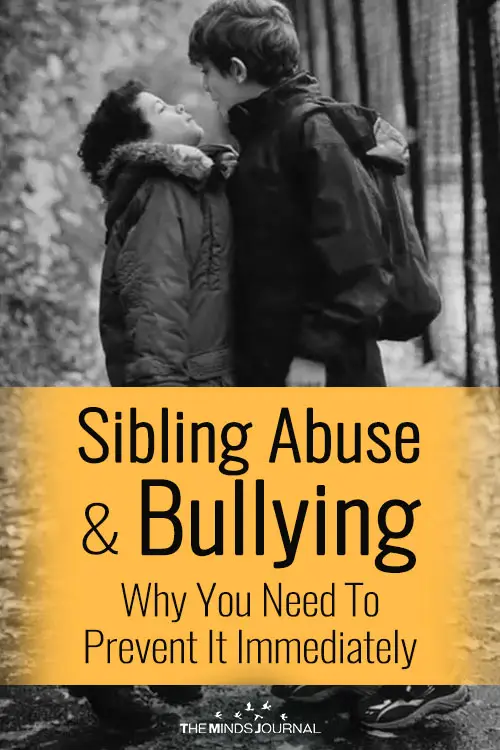
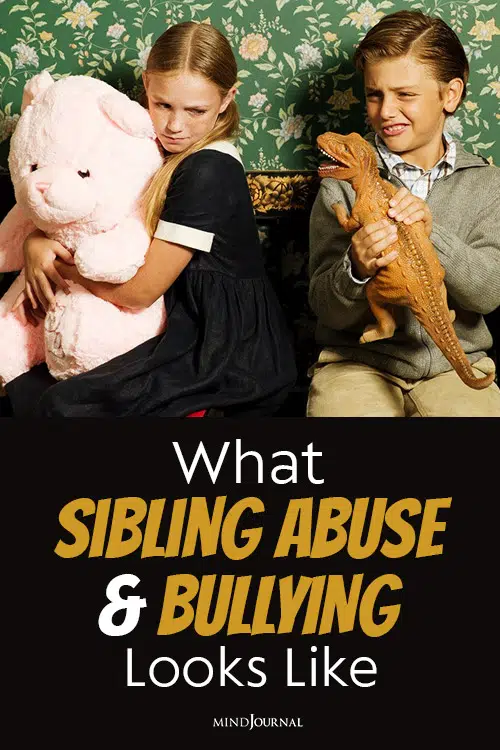
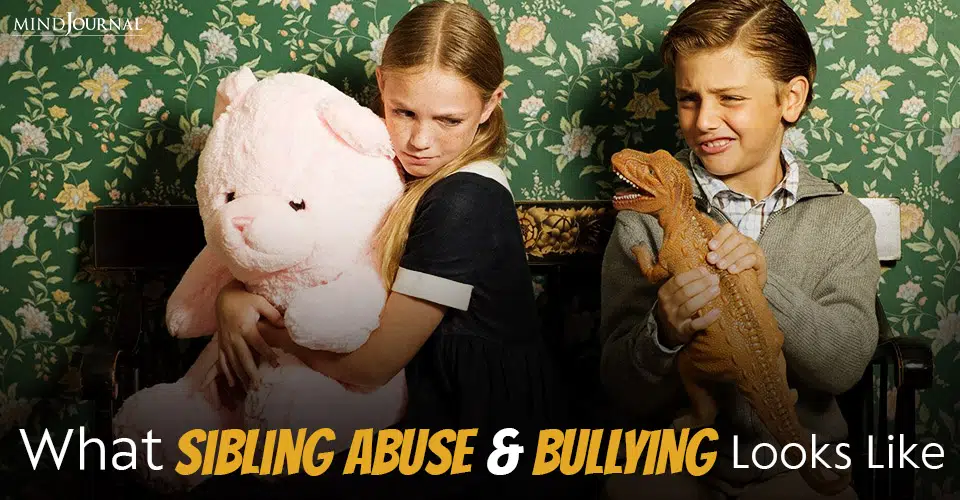







Leave a Reply
You must be logged in to post a comment.